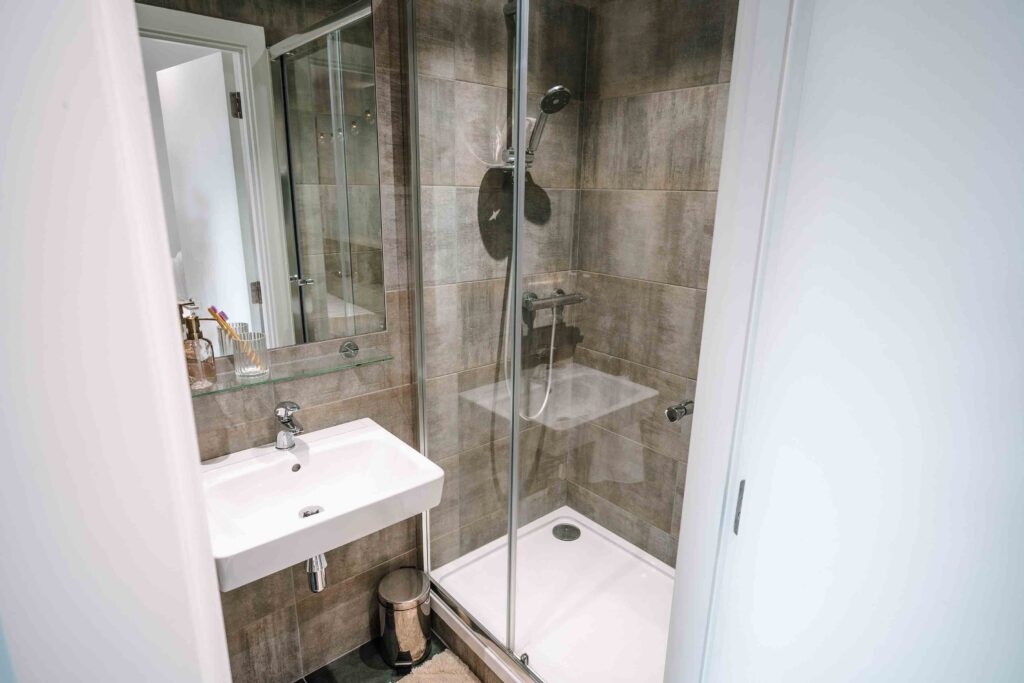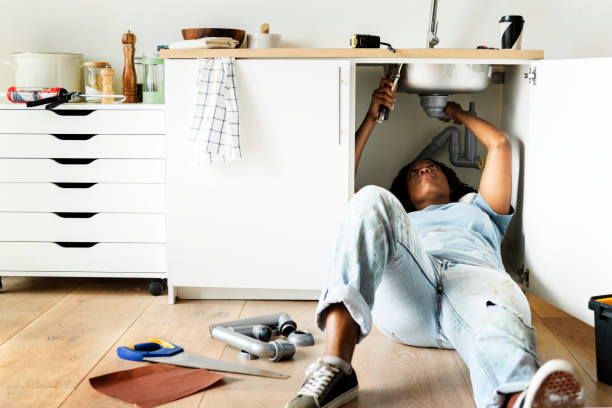Revealed: The Biggest Student Housing Problems in the Midlands
Back
Picture this: you think you’ve found the perfect HMO houseshare for you and your uni mates. You go to the viewing, you apply, you sign the contract – everything’s going great. Or is it?
The student housing hunt can feel like a mad rush, leaving students just happy to find anywhere to live. However, our recent survey of UK students found that problems with Midlands HMO house-share properties are much more common than you might think
In fact, 61% of students in the Midlands have experienced at least one major mishap while living in an HMO. This includes the university cities of Birmingham, Nottingham, and Stoke-on-Trent.
From damp, mould, and drainage problems, to squabbles over bills and landlords gone AWOL, our Fighting For a Fair Deal For Students campaign is uncovering some of the issues students face when living in an HMO, so you can make an informed decision when choosing your next student home.
Use our tips on how to avoid poor living conditions, understand your tenant rights, and most importantly of all, have the best student living experience possible. Check out the research, resources, and expert advice we’ve collated as part of our mission to make quality student housing the UK norm.
Keep reading to find out how you can avoid the five biggest problems in Midlands HMO house shares:

Damp and mould
In our survey, almost half of the Midlands students we surveyed reported that their HMO house share had suffered from damp and mouldy conditions. This figure varied across cities in the region, with as many as 63% of Nottingham’s students reporting damp and mould.
Damp is a tricky issue to solve. The causes are often not immediately obvious, which can create debate about who is responsible for tackling it.
Generally, student tenants are responsible for preventing any damp and mould caused by:
- Failure to properly heat the property.
- Not making use of ventilation measures like fans.
- Not opening windows when cooking or showering.
- Hanging washing to dry inside.
All of these activities raise the moisture content in the air inside your shared house, without giving it a way to escape. We recommend making sure you always do your bit to prevent mould by avoiding all of the above activities – this way, if you ever have to make a complaint about damp and mould, you can make it clear to your landlord that you are taking all the appropriate measures.
On the other hand, your HMO landlord must take action against an ongoing mould problem if:
- Its causes are structural – relating to the building’s walls, roof, guttering, render, a leak or burst pipe.
- It’s negatively impacting your health – mould can cause allergic reactions, respiratory illness, and asthma attacks.
- The property lacks ventilation or insulation measures – as above cooking appliances and bathroom vents are essential to managing humidity in homes, while insulation helps to keep the property warm and prevent intrusive damp.

If any or multiple of these causes are present, your landlord is legally required to conduct the appropriate repair and maintenance work to bring the property up to standards.
Ultimately, to avoid being blamed for damp and mould that isn’t your fault, be sure to identify it before deciding to move in. Use our helpful property viewing checklist to spot the signs.
Did you know? Reports of damp and mould in student HMOs are much higher in the Midlands than the national average. According to our survey, 42% of the UK’s students discover damp and mould in their house share, compared to 48% of students in Nottingham, Stoke-on-Trent, and Birmingham.
Electrical faults
Electricity is one of the pillars of modern life. It’s hard to imagine the student experience without it. From online study sessions to gaming marathons to doing your hair before a night out – students arrive at uni with more appliances than ever before.
Our survey revealed that 33% of Midlands students had electrical faults in their HMO, with the figure rising to a shocking 88% of Nottingham students.
Electrical faults can be caused by either landlord neglect or a tenant’s lack of knowledge about electrical safety.
What can you do to avoid dangerous electrical faults in your house share?

- Avoid overloading plug sockets or adaptors – you may have a lot of gadgets, but you don’t need to use all of them at once.
- Never use faulty or visibly damaged appliances – this includes those with cracked plugs or frayed wires.
- Test your smoke alarm regularly – your landlord should have provided this, but it’s up to you to make sure it’s in working order.
- Never cook or use heat-producing appliances while drunk – this includes hair straighteners.
- Don’t store anything on top of your microwave – this can block the vents and cause overheating.
What should your landlord do to ensure electrical safety?
- Have all repairs conducted by a certified electrician. It may be tempting to attempt repairs yourself, but don’t. Always report faults to your landlord.
- Ensure the property and any included appliances meet the government electrical safety standards.
- Inspect and test wiring, fuse boxes, sockets, and any other fixed electrical parts in the property at least every five years.
- Provide an electrical safety certificate for the property, alongside your tenancy agreement.
Did you know? Electrical problems don’t just mean a blown fuse in an appliance or going without power for a while. Faulty electrics cause around 4,000 fires in UK homes each year. Being responsible when using electrical appliances and ensuring your HMO has safe wiring are essential for preventing house fires and decreasing your risk of accidental electrocution.
Ignored calls to landlords
You may be thinking, ‘’Some problems while renting are unavoidable, it’s not a big deal to ask your landlord to do some repairs”.
While this is true, our survey also found that landlords in the Midlands can be notoriously difficult to get hold of. In Nottingham, a whopping three-quarters of students said their landlord had ignored their calls regarding repairs and maintenance, making any problems they faced much harder to address.
It’s not okay for your landlord to avoid speaking with you when you try to contact them about a genuine issue. In fact, it’s in their best interests to address any problems as soon as possible, especially if they are concerned with maintaining the condition of their property.
Aside from protecting their own investment, HMO landlords are required by law to keep their rented properties fit for human habitation. This includes preventing and addressing issues with:
- Damp and mould
- Infestations
- Extreme heat or cold
- Overcrowding
- Unfit water supply

If your landlord fails to do this, or is uncontactable, contact Citizen’s Advice for help.
Did you know? Keeping accurate records of the problems in your HMO house share and your attempts to contact your landlord is essential. Take photos, collect doctor’s notes, and attempt to reach out via email to create a paper trail of evidence that will help to fight your case if you need to make a formal complaint to your local council’s private renting team.
Splitting bills
Paying bills is never fun, but when you live in an HMO house share, it can be a logistical nightmare. No one wants to blow their student loan on gas and electricity, but keeping track is a challenge.
We discovered that almost half of house-sharing students in the Midlands argue over splitting bills. In Stoke, every student surveyed described it as a problem, while in Birmingham and Nottingham, 50% and 38% struggle respectively.
Students are often new to managing their own finances, and predicting varying monthly costs of broadband, water, electricity, and gas is near-impossible, even before you factor in splitting it between your housemates. Your usage will probably vary according to the season, and some housemates will use more energy than others. However, it’s not easy to work out who’s using what, which leaves some HMO renters feeling disgruntled that they have to cover others’ high usage.
When living in a house share, there are plenty of minor daily disagreements – from cleaning responsibilities to taking out the bins. Bill-splitting is just one more thing to worry about. Maintain domestic bliss by taking bills out of the equation.
Variable utilities contracts aren’t your only option. Here! Student Living’s all-inclusive contracts are ideal for keeping your monthly outgoings constant, as your utility bills and broadband are combined into the same payment. That means less time calculating and more time enjoying your uni experience.
Keep to your monthly budget with more tips from our guide to dodging hidden housing fees.
Did you know? Many energy providers will provide tariffs that are longer than the academic year. This means you could get stung by early exit fees when you move out. If you can’t get a fixed contract, do your research and factor potential early exit fees into your choice of provider.
Drainage issues
Modern plumbing is often taken for granted until something goes wrong. The resulting bad smells, blockages, non-flushing toilets and leaks are not only a headache to get repaired, they drastically reduce your living conditions.
Student house shares are surprisingly prone to drainage issues. Across the region, the following percentages of students we surveyed said the drains were a problem in their HMO:
- 21% in Birmingham
- 38% in Nottingham
- 24% across the whole of the Midlands
While it’s your landlord’s responsibility to maintain and repair the plumbing and pipes in your HMO, you do have some responsibilities as a tenant to take care of these systems and structures to prevent problems. This includes:

- Regularly unclogging your shower, bath, and sink plugholes – hair and food can cause blockages.
- Not pouring oil or fat down your kitchen plug hole – this can resolidify in the pipes leading to blockages, or if hot, burn holes in plastic piping and cause leaks.
- Using a bath mat and mopping up any excess water left on the floor after showers or baths – leaving surface water around can increase the chance of leaks, plus, it’s a slipping hazard.
- Keeping taps and showerheads clear of limescale – add this one to the cleaning rota.
- Never flushing items other than toilet roll down the toilet – bulkier things like kitchen roll, wet wipes, and sanitary products pose a risk of blockages in your pipes as well as the wider sewage system.
Did you know? If repairs or maintenance are required in your HMO, the landlord must give you and your flatmates at least 24 hours’ notice before accessing the property. However, this measure is waived in the case of an emergency, such as a fire, gas leak, or flood.
Is the era of student HMOs coming to an end?
With all the issues students in the Midlands face, it makes sense that 91% of HMO renters are considering or have considered alternative accommodation options for their time at uni.
We found that 53% of Midlands students consider managed student accommodation as a more reliable option compared to HMO house shares. These solve issues of bill conflict and offer onsite teams to tackle any problems immediately.
We’re fighting for a fair deal for students. Discover what the most common accommodation issues are, learn how to get more savvy when dealing with private landlords, and share your student rental horror stories. Find out more.

